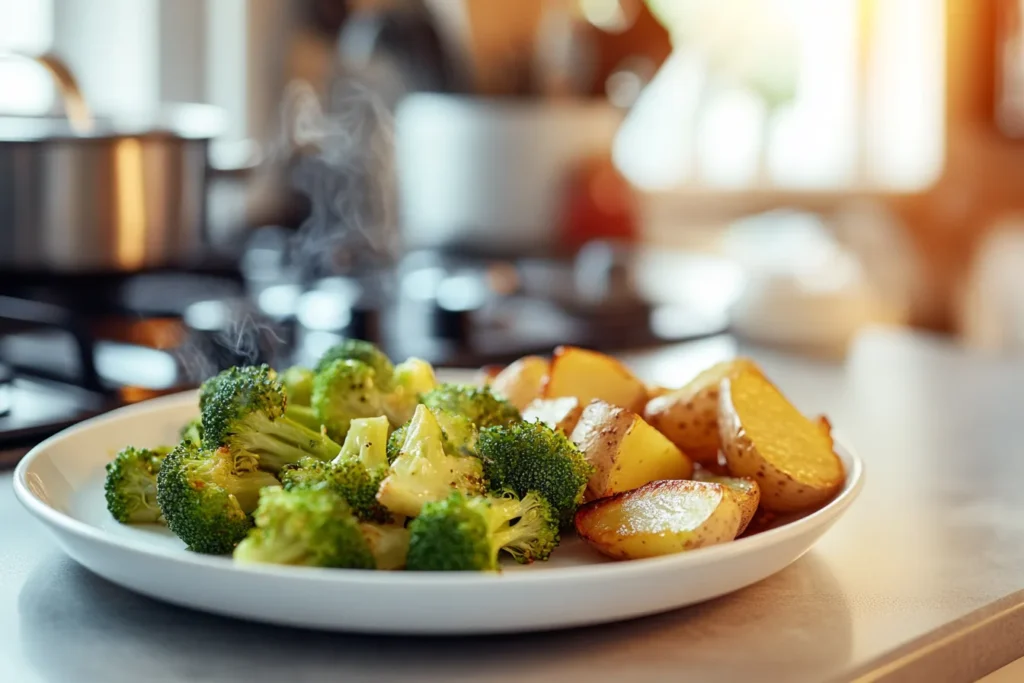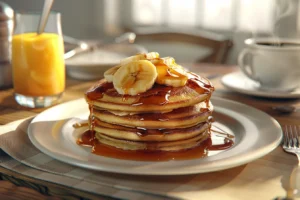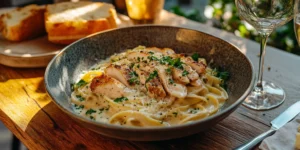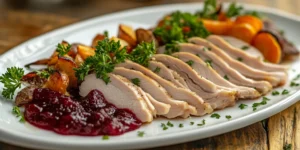Cooking vegetables can sometimes feel like a game of strategy, especially when you’re trying to ensure everything finishes at the same time. A common question many home cooks have is: Does broccoli cook faster than potatoes? The short answer is yes, broccoli does cook faster than potatoes. But why is that? Let’s dig into the science behind their cooking times and explore tips for preparing these two popular veggies to perfection.
Why Broccoli Cooks Faster Than Potatoes
Broccoli and potatoes may share space on your plate, but they couldn’t be more different in terms of how they cook. The key to understanding their different cooking times lies in their density, structure, and water content.
The Role of Density in Cooking Vegetables
Density plays a huge role in how quickly heat penetrates a vegetable. Potatoes are incredibly dense and packed with starch. This means it takes longer for heat to travel through their structure. On the other hand, broccoli, especially the florets, is much less dense. Its airy, fibrous structure allows heat to permeate quickly, speeding up the cooking process.
For tips on preparing potatoes to ensure optimal cooking, check out Why Soak Potatoes Before Roasting?. Additionally, if you’re wondering whether pre-boiling potatoes is a better choice for roasting, see Is It Better to Boil Potatoes Before Roasting?.
Why Broccoli Cooks Faster Than Potatoes
Another factor at play is water content. Broccoli is made up of around 90% water, making it a naturally efficient conductor of heat. Potatoes, in contrast, have less water and more starch, which slows down the cooking process.
Additionally, broccoli florets have a high surface area relative to their volume. This means that when broccoli is exposed to heat—whether it’s from boiling water, steam, or an oven—it cooks evenly and quickly.
Water Content and Cooking Efficiency
Water content isn’t just about cooking speed—it’s also about texture. Broccoli’s high water content means it becomes tender relatively fast, which is perfect for steaming or stir-frying. However, overcooking can lead to mushiness. Potatoes, with their lower water content, take longer to break down, ensuring they maintain their hearty texture even after prolonged cooking.
How Broccoli’s Cooking Time Compares to Potatoes
Now that we understand the science, let’s dive into how broccoli cook faster and how potatoes require different approaches. Different techniques can highlight their unique qualities while accommodating their cooking times.
Steaming: The Fastest Way to Cook Broccoli
Steaming broccoli is a lifesaver when you’re in a rush. It takes just 5-7 minutes to achieve perfectly tender broccoli with a vibrant green color. The trick is to avoid oversteaming, which can cause the florets to lose their crunch.
Steaming also locks in nutrients, making it one of the healthiest ways to prepare broccoli. In contrast, steaming potatoes—especially larger ones—can take anywhere from 20-30 minutes depending on their size.
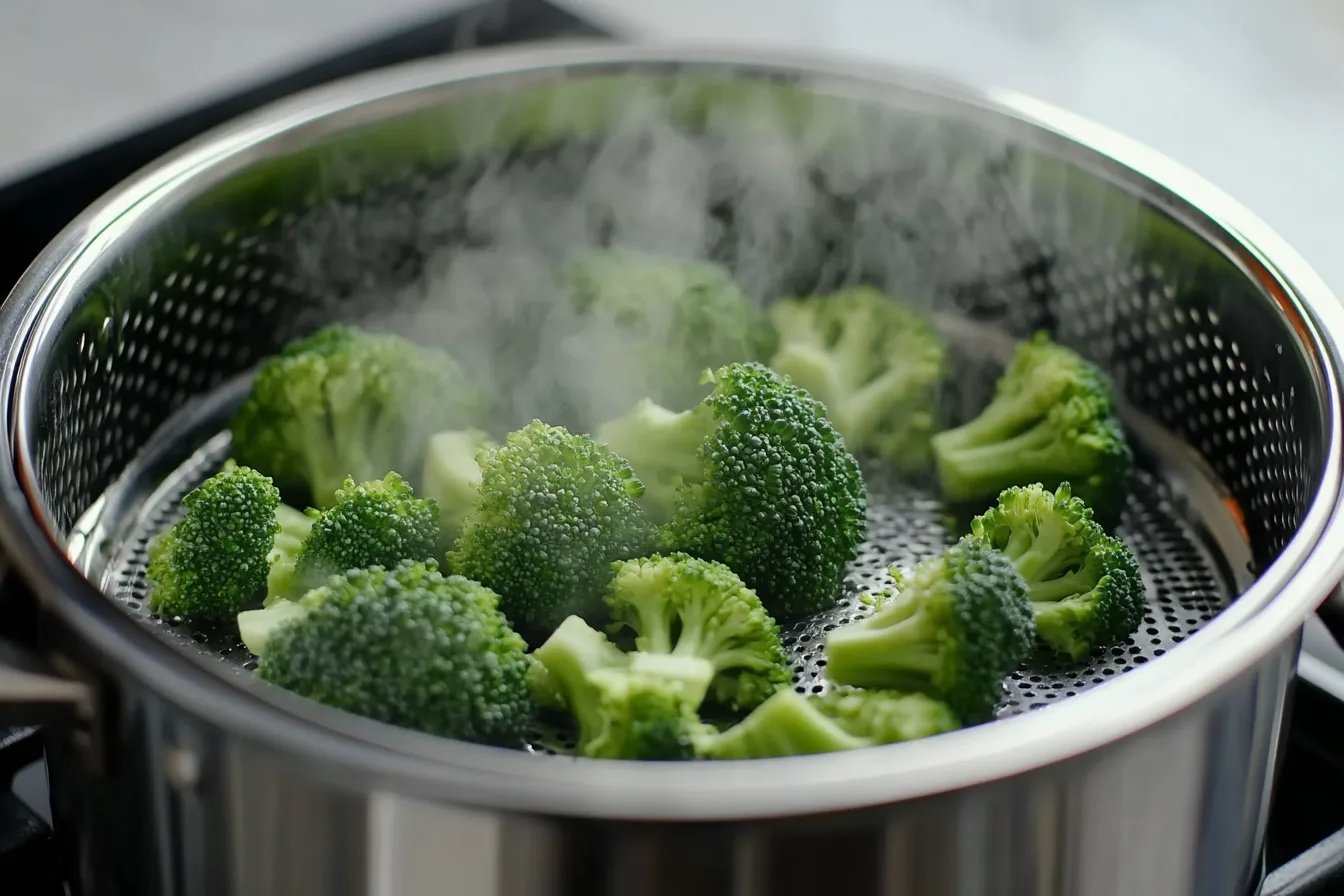
Why Boiling Broccoli Takes Less Time
Boiling broccoli is another quick method, requiring just 5-6 minutes. The florets cook even faster than the stalks, so you might want to separate them for even cooking. Potatoes, on the other hand, need at least 15-20 minutes of boiling to become fork-tender, and larger chunks can take even longer.
Why Potatoes Take Longer to Cook
If you’ve ever boiled potatoes for mashed potatoes or baked them for a hearty dinner, you already know they take their time. But why do potatoes demand more patience than broccoli?
Starch and Structure: The Potato’s Challenge
Potatoes are packed with starch, which requires more heat to break down. Unlike broccoli, potatoes don’t have a lot of water to help distribute heat quickly. The result is a slow cooking process, whether you’re boiling, roasting, or steaming.
How Potato Size and Type Affect Cooking Time
The size and type of potato can significantly influence cooking time. For example:
- Small red or new potatoes cook faster than large russet potatoes.
- Cubed potatoes boil more quickly than whole potatoes.
By cutting potatoes into smaller pieces or choosing thinner-skinned varieties, you can shave off valuable cooking time.
The Impact of Cooking Methods on Potatoes
Different cooking methods can also change how long potatoes take to cook:
- Baking a large potato can take up to an hour, while slicing it into wedges reduces the time to about 30-40 minutes.
- Boiling is faster but still takes at least 15-20 minutes for smaller pieces.
- Microwaving can be a quick alternative, softening potatoes in just 8-12 minutes.
Cooking Broccoli and Potatoes Together
Cooking broccoli and potatoes together is totally doable, but because broccoli cook faster than potatoes, you’ll need to stagger the cooking times to get the best results.
If you’re curious about their combined health benefits, you might enjoy reading Are Potatoes and Broccoli Healthy?. It explores how these two vegetables can complement each other nutritionally.
Timing Tips for Cooking Broccoli and Potatoes Together
If you’re boiling both vegetables:
- Start with the potatoes and boil them for 10-15 minutes.
- Add the broccoli during the last 5-7 minutes of cooking.
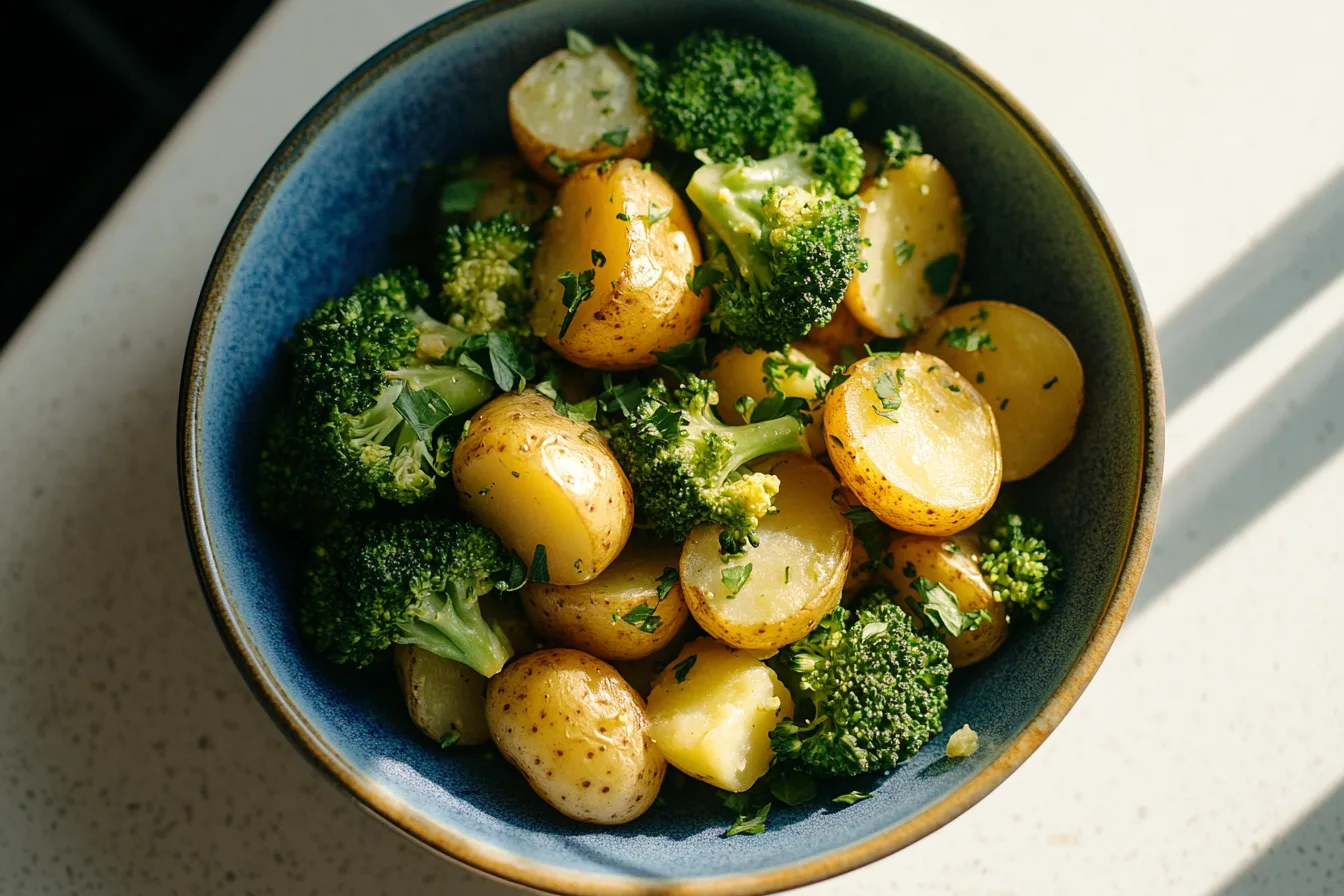
For roasting:
- Cut the potatoes into smaller chunks to match the broccoli’s cooking time.
- Roast the potatoes for 20-25 minutes, then add the broccoli for the last 10-15 minutes.
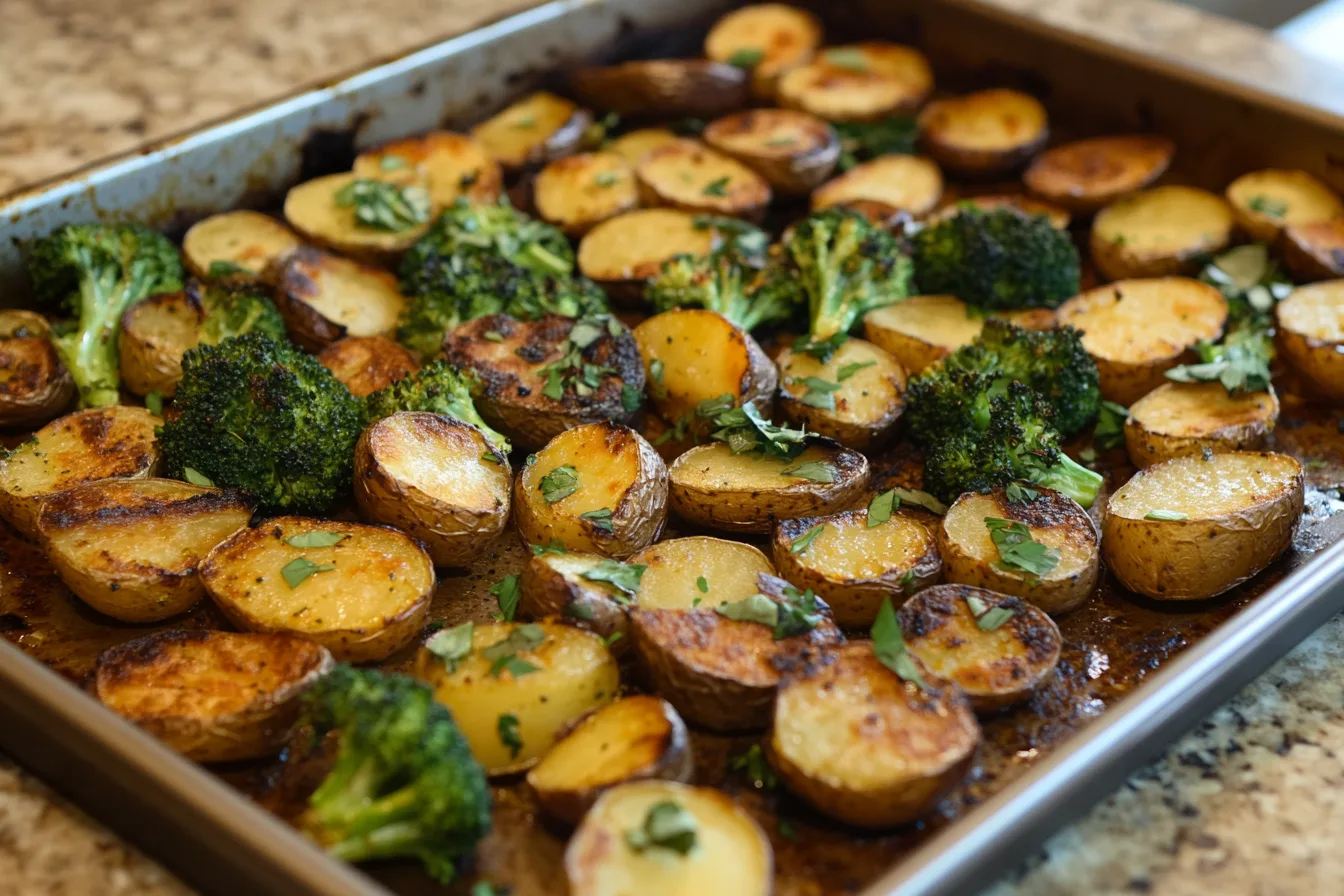
By staggering the cooking process, you can ensure both vegetables are perfectly cooked without one turning to mush.
Does Broccoli Cook Faster Than Potatoes?
Let’s explore more about how to make broccoli and potatoes shine in your kitchen. From their individual cooking methods to creative recipes, there’s plenty to discover about these versatile vegetables.
Best Ways to Cook Broccoli Quickly
If you’re looking for the fastest and most efficient ways to cook broccoli, there are several techniques to choose from. Each method brings out different textures and flavors, making broccoli a perfect fit for a variety of dishes.
Steaming for Crisp-Tender Broccoli
Steaming is arguably the best way to cook broccoli when time is of the essence. Not only is it quick, but it also preserves broccoli’s bright green color and crisp-tender texture.
Here’s how to do it:
- Place your broccoli florets in a steamer basket over simmering water.
- Cover with a lid and steam for 5-7 minutes, checking for doneness with a fork.
This method is perfect for side dishes or as an addition to salads and grain bowls. Plus, it keeps most of broccoli’s nutrients intact, unlike boiling, which can leach some vitamins into the water.
Roasting Broccoli for Flavor
Roasting may take a little longer than steaming, but it adds a depth of flavor that’s hard to beat. The dry heat caramelizes the natural sugars in broccoli, giving it a slightly sweet, nutty taste.
To roast broccoli:
- Toss the florets with olive oil, salt, and pepper.
- Spread them on a baking sheet and roast at 425°F (220°C) for about 15-20 minutes, flipping halfway through.
For extra flavor, sprinkle the roasted broccoli with garlic powder, Parmesan cheese, or a squeeze of fresh lemon juice before serving.
Best Ways to Cook Potatoes Perfectly
Potatoes are one of the most versatile vegetables in the kitchen. From silky mashed potatoes to crispy roasted wedges, there’s a method to suit every occasion.
Boiling Potatoes for Smooth Textures
Boiling is a classic method that works well for mashed potatoes, potato salads, or soups. To ensure even cooking, cut the potatoes into similarly sized pieces and start them in cold water.
Here’s the process:
- Bring a pot of salted water to a boil with your potatoes submerged.
- Simmer for 15-20 minutes (longer for larger chunks) until they’re fork-tender.
For a little extra flavor, try adding a bay leaf or garlic cloves to the water as the potatoes cook.
Roasting Potatoes for Crispy Perfection
Roasting potatoes is all about achieving that perfect balance of a crispy exterior and fluffy interior. It’s a great option for a hearty side dish or a base for loaded potato toppings.
To roast potatoes:
- Cut them into wedges or cubes and toss with oil, salt, and your favorite seasonings.
- Roast at 400°F (200°C) for about 30-40 minutes, flipping once to ensure even browning.
Paprika, rosemary, or garlic powder can elevate the flavor, while a drizzle of balsamic vinegar after roasting adds a tangy finish.
Cooking Broccoli and Potatoes Together
When you want to enjoy broccoli and potatoes in the same dish, timing and technique are key. Combining these vegetables not only saves time but also creates a balance of flavors and textures.
Adjusting Cooking Techniques to Match Times
Since broccoli cooks much faster than potatoes, one effective strategy is to adjust your methods so they align. For example:
- In a skillet: Start by sautéing diced potatoes with a bit of oil, then add broccoli florets toward the end.
- On a sheet pan: Roast potatoes first, and then toss broccoli in during the final 10-15 minutes of cooking.
Alternatively, you can blanch broccoli separately for a few minutes before adding it to a dish with pre-cooked potatoes, like a casserole or hash.
Nutrition Benefits of Broccoli and Potatoes
While their cooking times vary, broccoli and potatoes are nutritional powerhouses that complement each other beautifully. Understanding their health benefits can inspire you to include them in your meals more often.
How Cooking Affects Nutrients in Broccoli
Broccoli is rich in vitamins C and K, as well as fiber and antioxidants. However, its nutrient content can be impacted by cooking methods. For instance:
- Steaming preserves the most nutrients.
- Boiling may lead to some vitamin loss in the water, but this can be minimized by using less water and shorter cooking times.
Adding broccoli to your plate is a great way to boost your intake of essential nutrients while keeping your meals light and flavorful.
Preserving Nutrients in Potatoes
Potatoes often get a bad rap, but they’re actually packed with potassium, vitamin C, and complex carbohydrates. Cooking methods like baking or boiling with the skin on help retain their nutrient profile.
If you’re worried about calorie content, skip the heavy toppings like sour cream and butter. Instead, try Greek yogurt, herbs, or a drizzle of olive oil for a healthier twist.
Creative Recipes Featuring Both Vegetables
When paired together, broccoli and potatoes create hearty, satisfying dishes that are perfect for any occasion. Here are some recipe ideas to inspire your next meal.
Simple Broccoli and Potato Soup Recipe
A warm bowl of broccoli and potato soup is comforting and nutritious. To make it:
- Sauté onions and garlic in a large pot until fragrant.
- Add diced potatoes and cook with vegetable broth until tender.
- Toss in chopped broccoli and simmer for another 5-7 minutes.
- Blend the mixture until smooth, then season with salt, pepper, and a splash of cream.
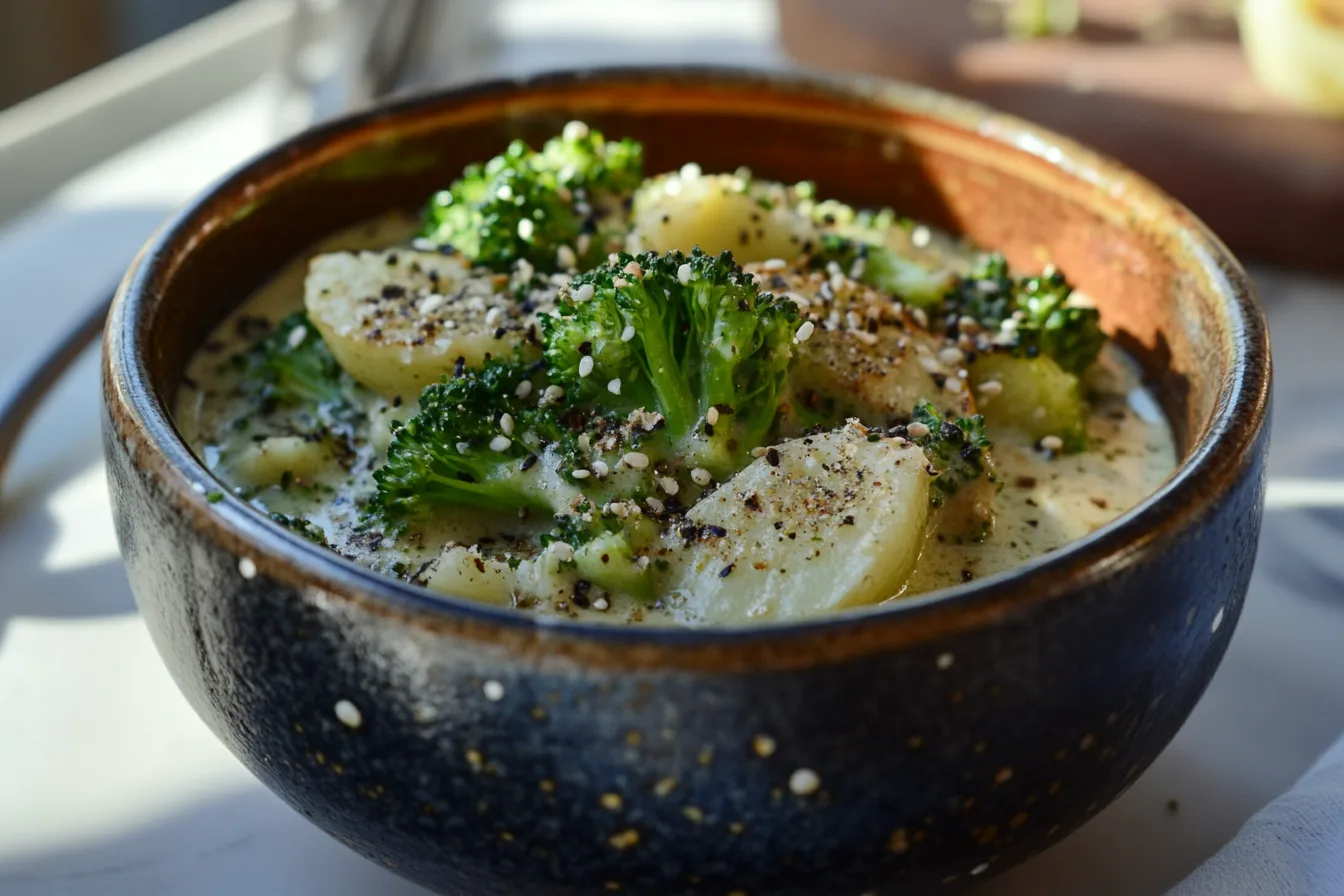
Serve this soup with crusty bread for a filling, delicious meal.
Roasted Broccoli and Potato Salad
This twist on a classic potato salad is perfect for picnics or potlucks. Here’s how to make it:
- Roast cubed potatoes and broccoli florets until golden brown.
- Toss them with a tangy dressing made from olive oil, Dijon mustard, and lemon juice.
- Add fresh herbs like parsley or dill for extra flavor.
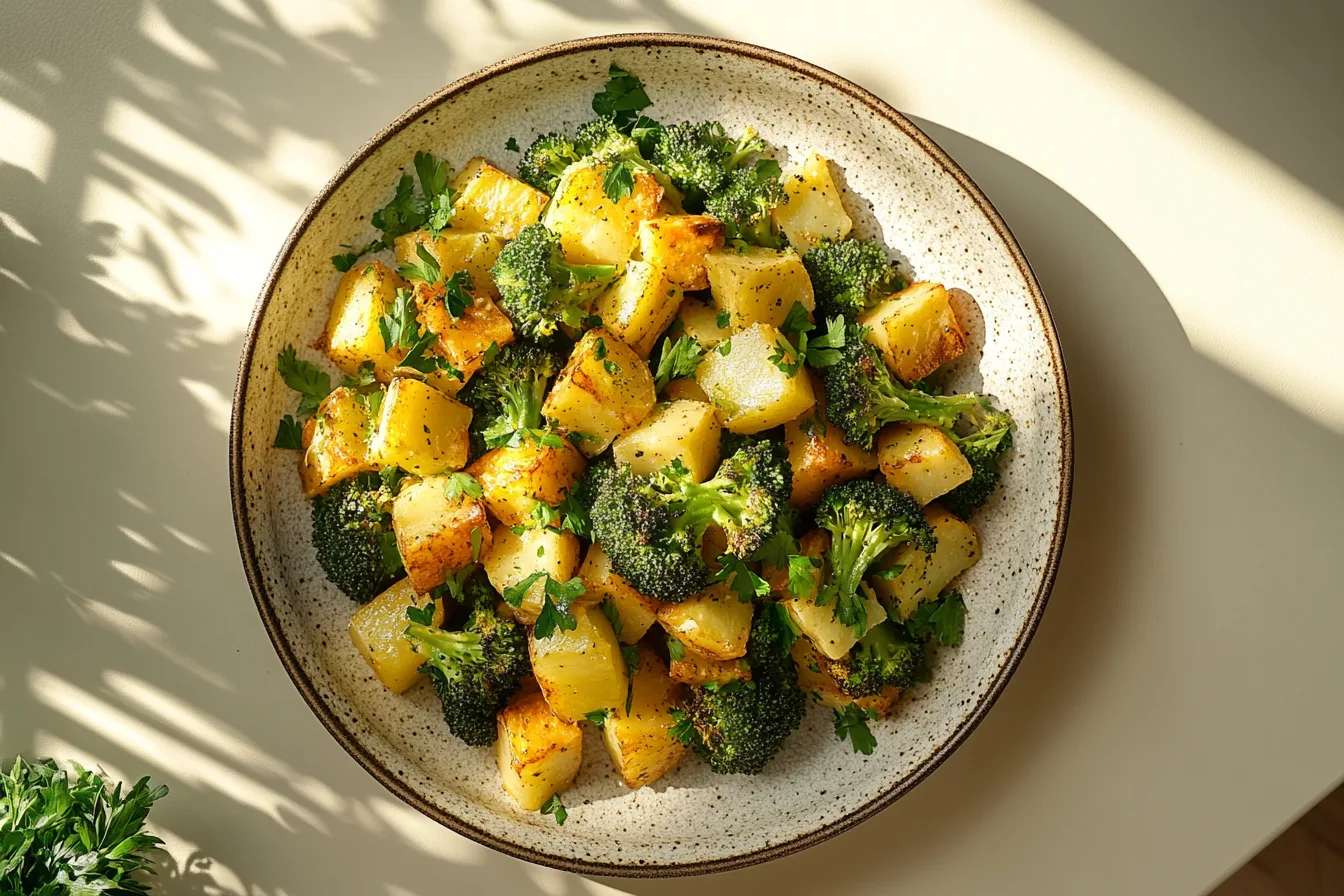
This salad is a crowd-pleaser that’s easy to customize with your favorite add-ins, like bacon, cheese, or roasted garlic.
Frequently Asked Questions
- Why does broccoli turn mushy if overcooked?
Broccoli’s high water content makes it highly sensitive to heat. Overcooking breaks down its cell structure, resulting in a mushy texture. To avoid this, cook broccoli just until it’s tender-crisp. - What’s the best way to cook potatoes quickly?
If you’re short on time, microwaving is your best bet. Simply pierce the potatoes with a fork and microwave them on high for 8-12 minutes, depending on their size. - Can you steam potatoes and broccoli at the same time?
Yes, but you’ll need to stagger them. Start steaming the potatoes first, then add the broccoli in the last 5-7 minutes of cooking. - How do cooking times vary by potato type?
Smaller, waxy potatoes like fingerlings cook faster than larger, starchy varieties like russets. Adjust cooking times based on the size and type of potato you’re using. - What are the best seasonings for broccoli and potatoes?
Broccoli pairs well with garlic, lemon, and Parmesan, while potatoes shine with rosemary, paprika, and olive oil. Combine these for a flavor-packed dish!
